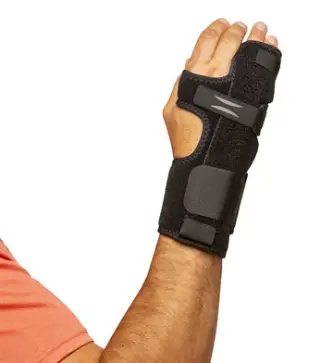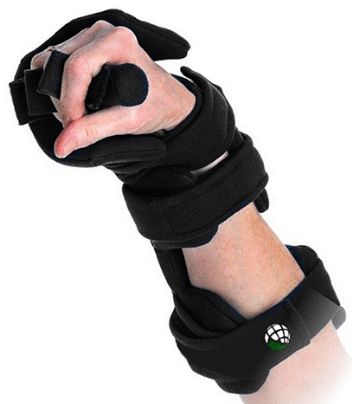Knuckle Orthosis
Knuckle Orthosis: Purpose, Benefits, and Applications
A Knuckle Orthosis is a specialized medical device designed to provide stability, support, and protection to the metacarpophalangeal (MCP) joints—the knuckles of the hand. These orthotic devices are commonly used in the treatment and rehabilitation of conditions affecting the hand, such as arthritis, fractures, ligament injuries, post-surgical recovery, and neurological conditions that impact hand function.
Purpose and Functionality
The primary function of a knuckle orthosis is to:
Stabilize and Protect the MCP Joints: Prevent excessive movement that may delay healing or worsen injuries.
Reduce Pain and Inflammation: Helps alleviate discomfort caused by arthritis, sprains, or post-operative recovery.
Improve Hand Function: Supports weakened muscles and ligaments while allowing controlled movement to maintain mobility.
Prevent Deformities: Essential in conditions like rheumatoid arthritis, where joint misalignment can worsen over time.
Types of Knuckle Orthoses
Knuckle orthoses come in various designs to cater to specific medical needs:
Rigid or Semi-Rigid Designs: Made from durable materials like plastic, metal, or thermoplastics, providing maximum support and immobilization.
Soft or Neoprene-Based Orthoses: Offer flexible support while allowing some range of motion, ideal for mild to moderate conditions.
Custom-Molded Orthoses: Tailored to an individual’s hand anatomy for precise fit and comfort, often prescribed by orthopedic specialists.
Dynamic Knuckle Orthoses: Designed for patients requiring gradual motion assistance, commonly used in neurological rehabilitation.
Common Uses and Medical Applications
Knuckle orthoses are widely used in the management of various hand-related conditions, including:
Post-Surgical Recovery – Provides protection after MCP joint surgeries, tendon repairs, or fracture treatments.
Arthritis (Rheumatoid & Osteoarthritis) – Helps reduce joint strain and deformity progression.
Ligament & Tendon Injuries – Supports healing of sprains, strains, or partial tears of hand ligaments.
Fractures & Dislocations – Immobilizes injured bones and joints for optimal recovery.
Neurological Conditions (Stroke, Cerebral Palsy, ALS) – Assists with muscle control and spasticity management.
Benefits of Using a Knuckle Orthosis
Enhanced Stability & Support – Reduces unnecessary motion, protecting weakened or injured structures.
Pain Relief – Helps minimize pain associated with movement by providing joint alignment and compression.
Customized Fit & Comfort – Available in different materials and styles to accommodate individual patient needs.
Improved Hand Function – Aids in performing daily tasks by supporting grip strength and dexterity.
Conclusion
A knuckle orthosis is an essential tool in orthopedic and rehabilitation care, offering crucial support for individuals recovering from hand injuries or managing chronic conditions. Whether for post-surgical immobilization, injury prevention, or pain relief, these devices play a significant role in enhancing mobility, function, and overall hand health. Consulting a healthcare professional ensures the correct selection and fit, leading to effective treatment and a better quality of life.
Hely & Weber is a renowned manufacturer of orthopedic braces and supports, known for its high-quality, innovative products designed to aid in injury prevention, rehabilitation, and post-surgical recovery. With a strong commitment to craftsmanship and medical expertise, Hely & Weber offers a comprehensive range of braces, including wrist, knee, ankle, and shoulder supports, catering to both athletes and patients in need of orthopedic solutions. Their products are trusted by healthcare professionals worldwide for their durability, comfort, and effectiveness in enhancing mobility and stability.
Easy Adjustable Wrist Orthosis - UNIVERSAL
An Adjustable Wrist Orthosis is a medical device designed to provide support, stability, and immobilization to the wrist while allowing for customization to fit individual needs. It is commonly used in the treatment of wrist injuries, chronic pain, or conditions requiring wrist immobilization or stabilization. Below is an explanation of its features and uses:
Key Features
- Adjustability:
- Equipped with adjustable straps, Velcro closures, or laces to customize the fit and compression according to the user's wrist size and comfort.
- Some models allow for adjustments to the angle or position of the wrist, providing tailored support for specific conditions.
- Supportive Design:
- Made from rigid or semi-rigid materials like plastic or metal splints embedded in soft, padded fabric.
- Provides stability to the wrist by limiting motion or maintaining it in a neutral or functional position.
- Universal Fit:
- Many adjustable orthoses are designed to fit a wide range of wrist sizes, making them versatile and convenient for multiple users.
- Breathable Materials:
- Often made from lightweight, breathable fabrics to ensure comfort during prolonged use.
- Equipped with adjustable straps, Velcro closures, or laces to customize the fit and compression according to the user's wrist size and comfort.
- Some models allow for adjustments to the angle or position of the wrist, providing tailored support for specific conditions.
- Made from rigid or semi-rigid materials like plastic or metal splints embedded in soft, padded fabric.
- Provides stability to the wrist by limiting motion or maintaining it in a neutral or functional position.
- Many adjustable orthoses are designed to fit a wide range of wrist sizes, making them versatile and convenient for multiple users.
- Often made from lightweight, breathable fabrics to ensure comfort during prolonged use.
Common Uses
- Injury Recovery:
- Helps immobilize the wrist after sprains, fractures, or surgeries to promote proper healing.
- Chronic Conditions:
- Provides support for managing pain associated with arthritis, tendonitis, or carpal tunnel syndrome.
- Post-Surgery Rehabilitation:
- Assists in post-operative care by stabilizing the wrist to prevent unnecessary movement.
- Spasticity Management:
- Used for neurological conditions like stroke, cerebral palsy, or multiple sclerosis to reduce spasticity and improve wrist positioning.
- Workplace Ergonomics:
- Worn by individuals performing repetitive tasks to prevent overuse injuries.
- Helps immobilize the wrist after sprains, fractures, or surgeries to promote proper healing.
- Provides support for managing pain associated with arthritis, tendonitis, or carpal tunnel syndrome.
- Assists in post-operative care by stabilizing the wrist to prevent unnecessary movement.
- Used for neurological conditions like stroke, cerebral palsy, or multiple sclerosis to reduce spasticity and improve wrist positioning.
- Worn by individuals performing repetitive tasks to prevent overuse injuries.
Benefits
- Reduces pain and inflammation by stabilizing the wrist and preventing harmful movements.
- Enhances recovery by promoting proper alignment and reducing strain on injured tissues.
- Lightweight and adjustable, allowing for prolonged use without significant discomfort.
These devices are commonly recommended by physicians, physical therapists, or occupational therapists and are often paired with exercises or therapy programs for optimal recovery.
SUGGESTED HCPC: L3916
ORDER NUMBER: 4100-E
SIZE: Universal
PRODUCT HIGHLIGHTS:
• Strong flexion synergy of the fingers and the wrist
• Adjustable hinge at the wrist to help increase wrist extension
• Optional finger separators help to prevent pressure areas
• Fits either left or right wrist
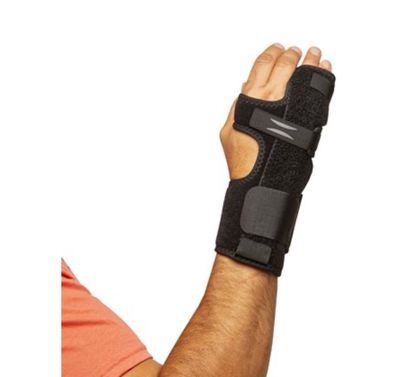
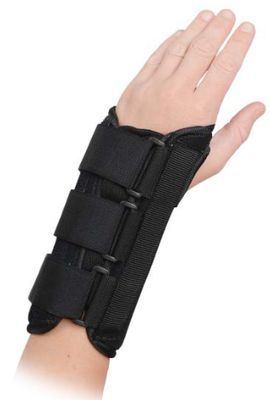
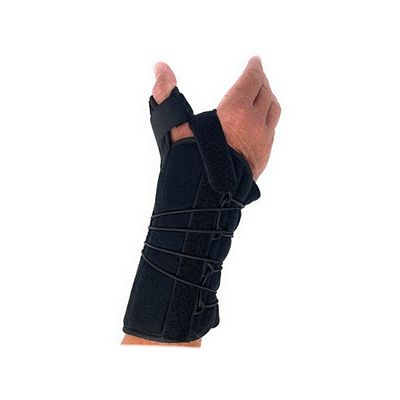
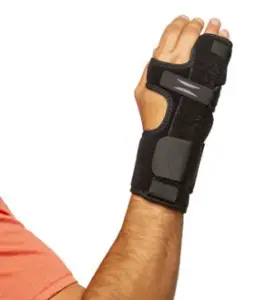
Knuckle Orthosis: Purpose, Benefits, and Applications
Knuckle Orthosis Knuckle Orthosis: Purpose, Benefits, and Applications A Knuckle Orthosis is a specialized medical device designed to provide stability, support, and protection to the metacarpophalangeal (MCP) joints—the knuckles of the hand. These orthotic devices are commonly used in the… Continue Reading…

Wrist and Hand Braces: Support, Relief, and Rehabilitation for Hand and Wrist Conditions
Wrist and Hand Braces Introduction Wrist and hand braces are essential tools for individuals managing pain, recovering from injuries, or dealing with chronic conditions such as carpal tunnel syndrome, arthritis, or tendonitis. These braces provide stability, compression, and support to… Continue Reading…

Orthopedic Shoulder Braces: Support for Shoulder Injuries and Chronic Conditions
Orthopedic Shoulder Braces Introduction Orthopedic shoulder braces are designed to provide support and stabilization for individuals recovering from shoulder injuries, managing chronic shoulder pain, or undergoing post-surgical rehabilitation. These braces help alleviate discomfort, protect the shoulder joint, and prevent further… Continue Reading…

Orthopedic Knee Braces: Types, Benefits, and How to Choose the Right One
Orthopedic Knee Braces Introduction Orthopedic knee braces are essential devices for individuals recovering from knee injuries, managing chronic pain, or undergoing rehabilitation after surgery. These braces offer support, stability, and protection, helping to improve mobility and alleviate discomfort. Whether you… Continue Reading…
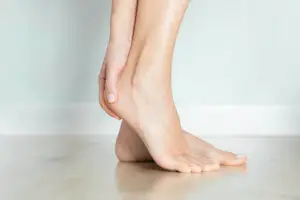
Foot Drop Orthotics: Improving Mobility and Safety
Table of Contents Foot Drop Introduction Foot drop is a condition characterized by difficulty lifting the front part of the foot, which can cause dragging while walking. This condition, often resulting from nerve injury, muscle disorders, or neurological diseases, affects… Continue Reading…
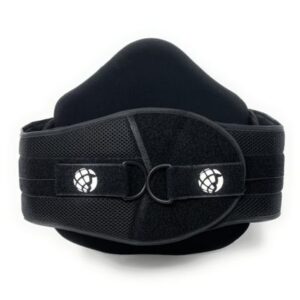
Spine Support Braces: Aligning and Protecting the Back
Spine Support Braces Introduction Spine support braces are crucial tools for individuals managing back pain, spinal conditions, or recovering from spinal surgery. These braces provide stabilization, alignment, and support to the spine, helping to alleviate pain and promote proper posture…. Continue Reading…

